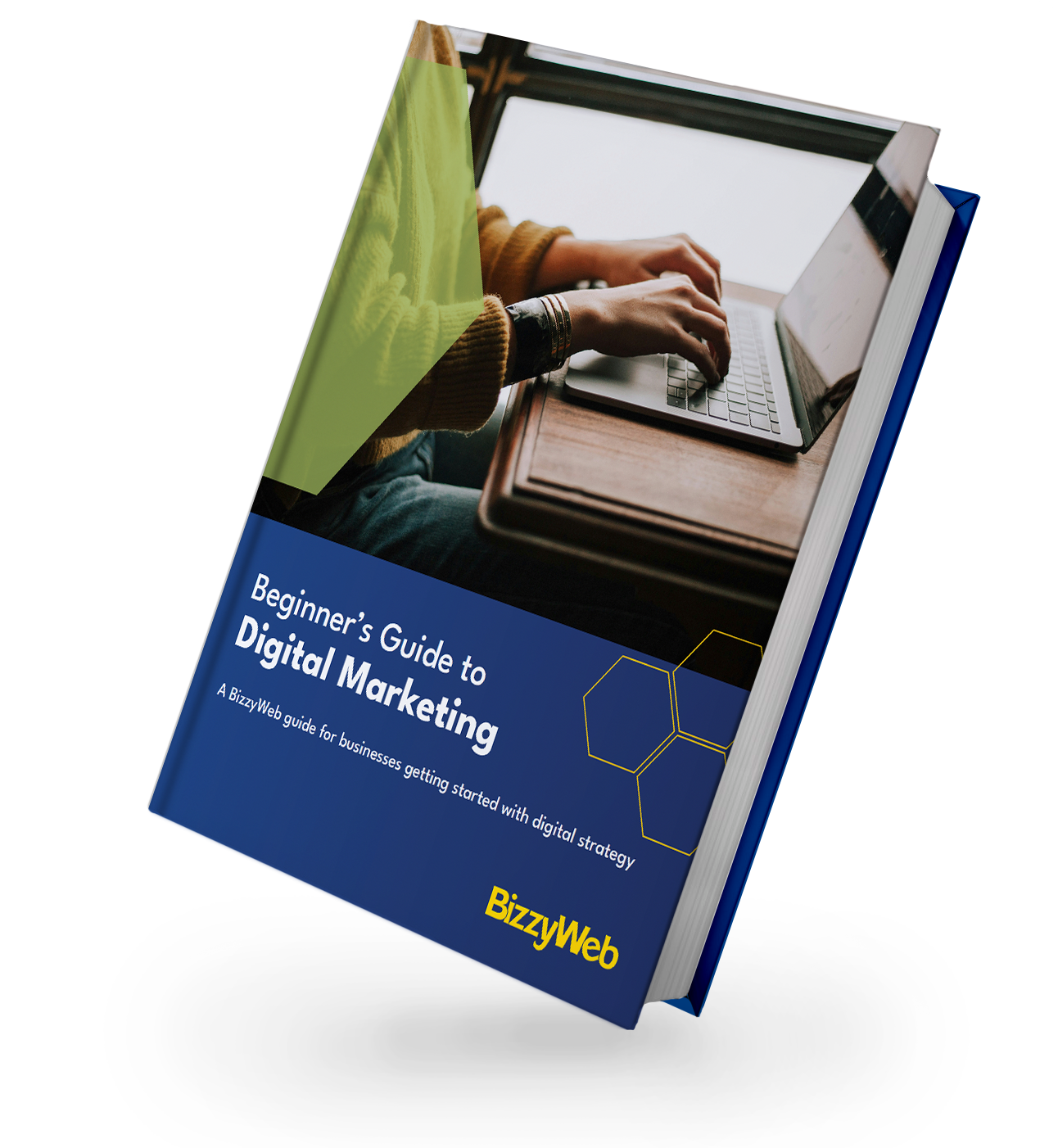The digital marketing landscape has changed drastically, even just from last year. There's AI, new imagery options, some social channels have changed names and focus (looking at you, X/Twitter), and so much more. One thing has (and will always) stayed the same is the need for a strong digital marketing strategy.
Whether you're updating an existing strategy or starting from the ground up, follow these tips for creating a digital marketing strategy in 2024.
What’s Your Strategy?
Simply stated, strategy is thinking about why you’re doing something before you do it. Starting your digital marketing strategy is as simple as deciding what you want to do, how you’re going to do it, what you expect to happen, and when and how you’ll measure your success. Each strategy should include a SMART Goal. SMART Goals are Specific, Measurable, Attainable, Relevant and Timely.
Related Content: How to Set SMART Marketing Goals in 5 Steps

Free Guide
Everything You Ever Wanted to Know About Digital Marketing
Results: What Do You Want?
Here are a few sample goals, with matching SMART measurements.
Brand Awareness: You want more people to know about your brand, and to get your products and services more widely known.
Example SMART Goal: % Follower growth on social media within 30 days.
Lead Generation: You want to reach people who’ve never bought from you before and bring them into your buyer’s journey.
Example SMART Goal: X Number of leads from a piece of downloaded content in 1 month.
Growth From Existing Customers: You want people who’ve already bought from you before to buy more frequently or a different kind of product.
Example SMART Goal: % of existing customers buying a secondary product within the year.
5 Steps to Creating a Strategy
1. Set a Measurable Goal
Using your SMART goal and desired results as a guide, determine the goal(s) for your marketing program. This will likely culminate in one main goal - an example might be increasing lead generation by increasing your number of recurring customers by x% in a year.
2. Know Your Audience
Now that you know what you want to achieve, you need to figure out who your best prospects will be. If you don’t have a clear picture of who you’re trying to reach, you’ll struggle to deliver a relevant message to cut through all the other marketing “noise.”
The easiest way to identify your "who" is to make your own buyer personas. Buyer personas are functionalized, general descriptions of your ideal customers. Personas help you understand your customers (and prospective leads) better and make it easier for you to tailor content to the specific needs, behaviors and concerns of different groups.
Related Content: What is a Buyer Persona? (And How Do I Make One?)
3. Know Your Brand
Your brand is how and why your customers choose you over your competitors. You can think of Brand as your company’s personality. It's worth defining clearly – what do you stand for? What are your strongest character traits? How does that translate into your presence – from the images you use on your website to the language you use in your emails?
4. Watch Your Competition
Your competitors aren’t just those who offer a like-for-like product or service. You can think of your competition in 3 ways:
- Direct Competitors - The brands offering the same products and services as you.
- Indirect Competitors - The brands that may offer different products but compete for the same space or budget that you do. (HubSpot CMS vs WordPress for example)
- Comparators - These might have a similar look and feel as a brand to you, or be other brands that your target customers use frequently. (Pepsi vs. Coke - a comparator might be another beverage, or even McDonald's fries in the category "lunch consumables")
You want to know what you’re up against, and you can learn vicariously from both triumphs and mistakes among your competitors. Get inspired by your competitors’ wins and use your differences to highlight what’s unique about what you're offering.
5. Get Ready to Measure
Digital marketing, like all types of marketing, can be a little nebulous and difficult to quantify. However, there are a few ways to attach a return on investment (ROI) to your digital marketing efforts.
Measure ROI Through Your Goals
The most important element of any marketing strategy is having a clearly defined goal. It’s impossible to track ROI unless you know what you want that return to be. For most digital marketing or inbound campaigns, the goal will be landing page conversions. For those not versed in marketing speak – a conversion is someone who takes a desired action. For an e-commerce business, this is simple – they bought something you told them to. But for other businesses, a conversion could be a variety of things:
- A click to make a phone call
- Downloading an eBook
- Filling out a “contact us” form
- Completing a quote online
- And many more
The best way to measure ROI is by referring back to the goal you set in step 1. How close are you to achieving that goal? Did you achieve it? Did you miss it? These metrics matter more than views, likes and comments.
Get More Tips in the Full Guide
Beginner's Guide to Digital Marketing
- What exactly digital marketing is and how it works
- Best practices for your digital marketing strategy
- How to measure the impact and ROI of your strategy

Beginner's Guide to Digital Marketing
Everything You Ever Wanted to Know About Digital Marketing





